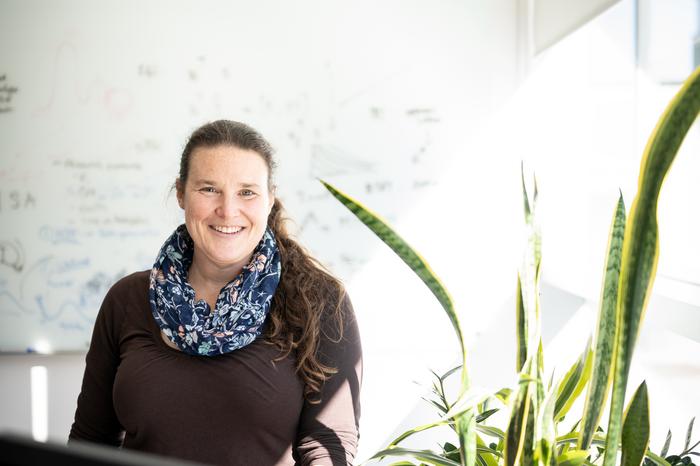Barbara Engelhardt, PhD, a senior investigator at Gladstone Institutes, has been elected as a fellow to the International Society for Computational Biology, joining 14 other scientists from around the world who earn the distinction this year.

Credit: Michael Short/Gladstone Institutes
Barbara Engelhardt, PhD, a senior investigator at Gladstone Institutes, has been elected as a fellow to the International Society for Computational Biology, joining 14 other scientists from around the world who earn the distinction this year.
The ISCB Fellows program is a prestigious recognition within the field of computational biology honoring those who have made outstanding contributions to the discipline. These distinguished scientists and professionals have demonstrated exceptional leadership, research, and service, advancing the frontiers of computational biology and bioinformatics, the society said in a statement: “Induction as an ISCB Fellow signifies a career of significant impact and a commitment to advancing the field.”
Engelhardt, who’s also a professor in the Department of Biomedical Data Science at Stanford University, is globally acclaimed for advancing statistical and machine learning models that analyze a large number of variables in biomedical research. Her work spans genomic data, imaging data, and the vast troves of electronic medical record data that could be used to predict the best course of treatment or correct health inequities.
“The medical universe today generates an overwhelming amount of information, from the DNA of individual patients to the health care system as a whole,” Engelhardt says. “With the right tools and approaches, we can mine these mountains of data for actionable trends and information that will lead to better health.”
Like many members of the Gladstone Institute of Data Science & Biotechnology, Engelhardt’s work influences a broad spectrum of health and disease. For example, her analysis of health care data has led to a policy for weaning patients from a mechanical ventilator; in a different study, she analyzed how traumatic events are stored in cells, sometimes leading to disease. Most recently, in a study that appeared in Nature Methods, she developed a computational method for gaining an in-depth picture of a tumor from a small tissue sample.
Engelhardt opened her Gladstone laboratory in 2021. She previously served as a full professor at Princeton University and assistant professor at Duke University, where she started her first lab. She was a postdoctoral researcher at the University of Chicago after completing her PhD in computer science at UC Berkeley. Recognized with the 2020 Overton Prize, also from ISCB, her emphasis on interpretable, robust, and computationally efficient methods has led to crucial discoveries in genetics, genomics, and epidemiology.
“Barbara is not only a rare scientific talent who’s making a tremendous impact on health and medicine, but she is also an impeccable leader and mentor who promotes diversity and inclusion in her laboratory and throughout Gladstone,” says Gladstone Senior Investigator Katie Pollard, PhD, director of the Gladstone Institute for Data Science and Biotechnology. “We congratulate Barbara on this major career achievement and look forward to all of the discoveries still to come from her work.”
ISCB will be honoring the 2024 Class of Fellows during its annual conference in July.
About Gladstone Institutes
Gladstone Institutes is an independent, nonprofit life science research organization that uses visionary science and technology to overcome disease. Established in 1979, it is located in the epicenter of biomedical and technological innovation, in the Mission Bay neighborhood of San Francisco. Gladstone has created a research model that disrupts how science is done, funds big ideas, and attracts the brightest minds.




